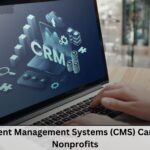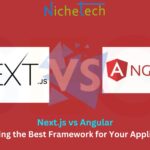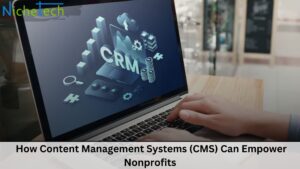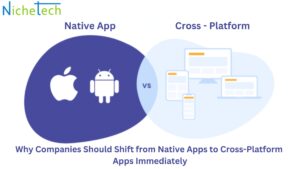India has emerged as a global hub for software development, particularly for full-stack development services. With a vast talent pool of skilled developers and cost-effective solutions, many businesses worldwide are turning to Indian agencies to build their digital products. However, choosing the right full-stack development agency from India can be challenging due to the sheer number of available options.
Here’s a comprehensive guide to help you select the best full-stack developer agency from India to meet your project’s needs.
1. Define Your Project Requirements
Before starting your search for a full-stack development agency, clearly define your project scope and requirements. This includes understanding what technologies, features, and functionalities your product will need. Full-stack development typically covers both front-end and back-end technologies, so it’s essential to know whether you need expertise in specific stacks (like MEAN, MERN, or LAMP) or frameworks (such as React, Angular, Vue, Node.js, Django, etc.).
Why it matters: A clear project scope helps you find an agency that aligns with your technical needs and project goals. It also allows you to communicate your expectations effectively, ensuring the agency has the right skills for the job.
2. Evaluate Technical Expertise
India has agencies that specialize in various full-stack technologies, so it’s crucial to assess the agency’s technical expertise. Look for agencies that have experience with modern technologies and frameworks and can deliver both front-end and back-end development with efficiency and scalability.
A few key full-stack technologies include:
Front-End: React, Angular, Vue.js
Back-End: Node.js, Python (Django/Flask), PHP (Laravel), Ruby on Rails, .NET
Databases: MongoDB, MySQL, PostgreSQL, Firebase
Why it matters: You want an agency that has deep experience in the tech stack that best suits your project. A technologically sound team will ensure your app or website is efficient, scalable, and meets modern development standards.
3. Review Portfolio and Case Studies
One of the best ways to assess an agency’s capabilities is by reviewing their portfolio and case studies. A strong portfolio showcases the agency’s experience across industries and different types of projects. Look for projects that align with your own, in terms of complexity, scale, and technological requirements.
Why it matters: By examining case studies and past projects, you can evaluate the agency’s ability to solve challenges, innovate, and successfully deliver products. This will also give you insights into their design, development process, and post-launch support.
4. Consider Communication and Time Zone Compatibility
Communication is critical when working with an offshore development agency. India has a significant time zone difference with many Western countries, so it’s essential to choose an agency that offers overlapping working hours or flexible communication methods.
Check if the agency has fluent English-speaking project managers and developers who can communicate clearly and efficiently. Regular updates, status reports, and meetings should be part of their workflow.
Why it matters: A seamless communication process ensures that your project runs smoothly, and any issues or concerns can be addressed in real-time. Miscommunication can lead to delays, errors, and a final product that doesn’t meet your expectations.
5. Check Reviews and References
Third-party reviews and client testimonials can provide valuable insights into an agency’s reputation and reliability. Look for reviews on platforms like Clutch, GoodFirms, or Google to see how past clients have rated their experience with the agency. You can also ask the agency for references and reach out to previous clients directly for a more in-depth understanding.
Why it matters: Positive reviews and satisfied clients are a good indicator of the agency’s professionalism, quality of work, and ability to meet deadlines. They also provide insight into how the agency handles challenges and whether they offer excellent post-launch support.
6. Evaluate Their Development Process
A well-structured development process ensures that your project is delivered on time and meets your quality standards. Ask the agency about their development methodology—do they use Agile, Waterfall, or a hybrid approach? Agile development, for example, offers flexibility and allows you to make iterative changes based on real-time feedback.
Inquire about their project management tools (such as Jira, Trello, Asana) and how they track progress, assign tasks, and manage timelines.
Why it matters: A transparent and flexible development process will keep your project on track, and an Agile approach is often ideal for projects that require frequent updates or evolving features. A solid process also minimizes risks and ensures better communication between teams.
7. Assess the Team’s Experience and Expertise
Ensure that the agency you select has experienced developers who are well-versed in full-stack development. Ask about the qualifications and experience of the developers who will be working on your project. Look for developers with a balance of front-end, back-end, and database management skills.
Why it matters: A skilled team can quickly adapt to challenges and deliver a product that is both functional and aesthetically appealing. The right expertise ensures that your website or app will be built to modern standards, with a strong emphasis on performance and security.
8. Understand Their Support and Maintenance Services
Post-launch support is just as important as the development phase. Websites and apps require ongoing maintenance, including bug fixes, updates, and feature enhancements. Make sure the agency offers support and maintenance services after the project is delivered, and clarify the terms of these services.
Why it matters: A reliable support team will ensure that your app or website runs smoothly even after the launch. They can quickly address any issues and help you scale or enhance the platform as needed.
9. Consider the Cost and Payment Structure
Cost is often a key factor when choosing a full-stack development agency from India. While Indian agencies are generally more cost-effective than those in the US or Europe, it’s essential to balance cost with quality. Beware of agencies that offer exceptionally low rates, as this can be a red flag for inexperience or poor-quality work.
Ask about the agency’s payment structure—whether they charge by the hour, project, or on a retainer basis. Ensure that the pricing model aligns with your budget and project scope.
Why it matters: A clear and transparent pricing structure helps you avoid unexpected costs and ensures that the project stays within budget. It’s important to invest in quality development services to avoid rework or technical debt down the line.
10. Consider Long-Term Partnership Potential
Full-stack development is not a one-time task; most businesses require ongoing improvements, updates, and feature additions. Therefore, it’s essential to find an agency that can be a long-term partner rather than just a one-time service provider. Assess their willingness and capacity to support your project beyond the initial development phase.
Why it matters: A long-term partnership with a reliable agency will ensure that your platform can scale, evolve, and adapt to market needs as your business grows. This consistency can also save you time and money when making future updates.
Conclusion
Choosing the right full-stack development agency from India is a crucial decision that can impact the success of your digital product. By carefully evaluating an agency’s technical expertise, communication skills, development process, and client reviews, you can ensure that you select a team that meets your project’s needs. Additionally, focusing on long-term partnership potential and post-launch support will help you build a scalable, high-quality product that delivers long-lasting value.
Take your time to research and vet potential agencies, and make sure they align with your goals, budget, and vision for the project.







